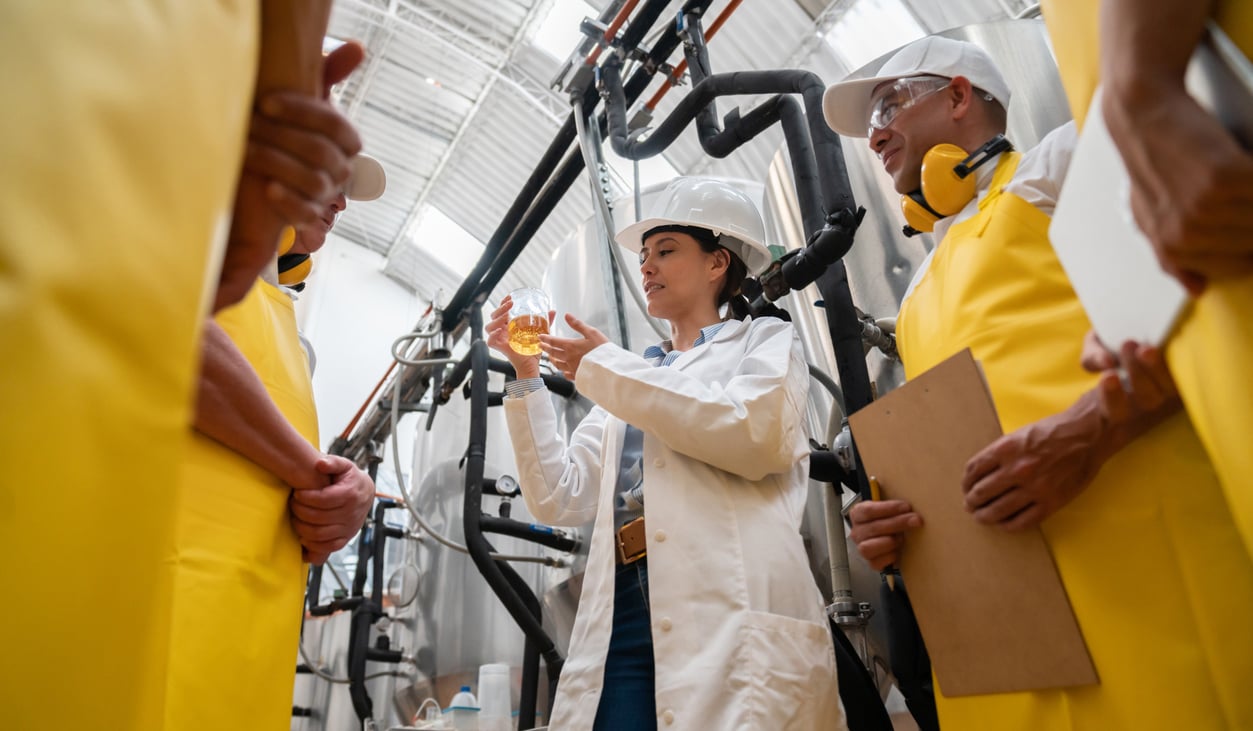4 Ways to Help Frontline Workers Get the Most Out of Food Safety Training
Food safety training is critical for preventing foodborne illness outbreaks that harm not only the health of consumers but also your brand’s reputation and bottom line. However, whether due to pressures from labor shortages or demand for higher productivity, frontline workers may not always apply their food safety training to their day-to-day work.
To close that gap, here are four tips to help leaders find strategies that can maximize the impact of food safety training for frontline employees.
1. Provide on-the-floor coaching
Managers and supervisors can invigorate their food safety training programs for frontline staff by providing on-the-floor coaching that proactively addresses issues and reinforces knowledge.
To create an effective on-the-floor coaching program, leaders should provide frontline employees with feedback on food safety best-practices. Tactful coaching requires a mix of strong communication and reinforcement skills, as well as the ability to quickly identify food safety risks. Leaders should also know how to offer constructive and corrective feedback that ties actions back to broader food safety principles, rather than criticizing or calling out frontline staff when something goes wrong.
AIB International’s PCQI training program is designed to upskill your facility’s managers or supervisors. Developed by a team of PCQI food safety professionals, the course helps leaders develop the necessary skills, knowledge, and competencies to go above and beyond compliance.
2. Create training reinforcement materials
The best food safety programs are straightforward and easy-to-understand because, at the end of the day, protecting public health is common sense. Unfortunately, many facilities have complex SOPs written in jargon-heavy language that requires effort to contextualize in day-to-day frontline operations, making food safety a barrier to overcome rather than simple, top-of-mind knowledge.
Stakeholders need to reinforce training using simple materials, such as digital signage or posters placed in high-traffic areas that quickly communicate fast facts and key concepts using images and callouts. Rotating different visuals can also keep these skills top-of-mind.
Similarly, providing frontline employees with easy-to-use food safety checklists and handouts, rather than hefty training manuals, can help them easily find the information they need. The more easily digestible the content, the better.
3. Provide continuous learning opportunities
The world of food safety is ever-changing, and frontline employees must stay up-to-date on the latest, best practices and requirements. This demands continuous training, learning opportunities, and resources to ensure your facility’s food safety is up to standard.
Leaders should not only invest in training programs but also create structure around and schedule time for their employees to learn — making education a central part of their jobs. Participation can be incentivized by tying training and performance to job advancement, raises, and other rewards for excellence.
4. Choose the right training provider
To maximize the benefits of a program, it’s up to leaders to ensure food safety training is delivered properly from the beginning. Nobody enjoys days-long sessions with little interactivity. Instead, choose an agile course with hands-on immersion for frontline employees. Keep these features in mind:
- Microlearning modules that are easy for employees to digest on busy days, such as AIB’s Food Safety Essentials course made up of 15 half-hour lessons. Breaking up large chunks of information into bite-sized pieces helps frontline workers better retain what they’ve learned on any given day.
- Performance support, such as quizzes, to ensure frontline employees are truly internalizing new knowledge while you determine whether additional training is needed. They’re also a great way to reinforce core concepts over time.
- Personalized training, whether virtual or in-person, for your facility to better apply information to requirements and workflows in frontline employees’ day-to-day work.
Train Frontline Food Manufacturing Workers the Right Way
High-quality training materials and programs are essential for frontline workers to master food safety principles — and these educational resources need the backing of experienced and trusted experts. AIB International has been a food safety leader for over a century, directly helping customers overcome challenges while providing world-class training and educational support to employees. Our food safety training programs are designed to help frontline staff feel more empowered to maintain the highest standards of hygiene and sanitation.


